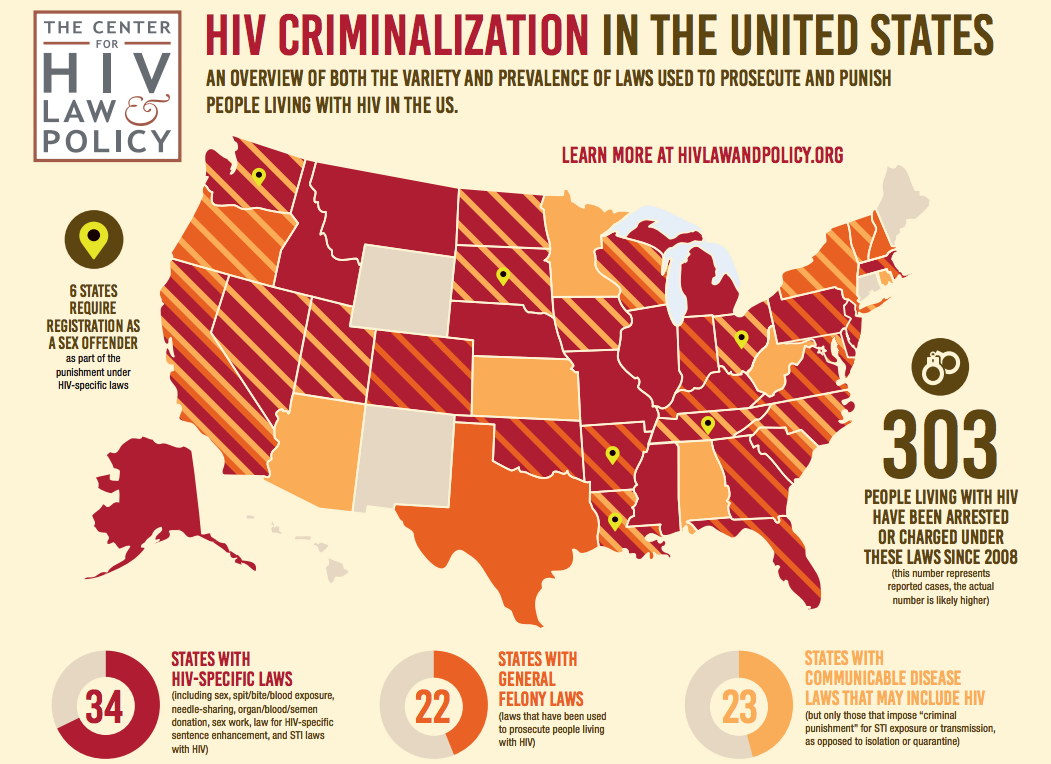
The Center for HIV Law and Policy (CHLP) and the National LGBTQ Task Force are pleased to announce the release of an exciting new resource that can help foster more intersectional advocacy for HIV criminal law reform. HIV Criminalization Beyond Non-Disclosure: Advocacy Toolkits on Intersections with Sex Work and Syringe Use is the sum of two toolkits designed for advocates who care about ending the disproportionate criminalization of people living with HIV.
The toolkits highlight the intersections between advocacy for HIV criminal law reform, sex work decriminalization, and safe syringe access. These different advocacy communities share many common goals and constituencies, yet do not generally work in close collaboration or collectively strategize. The toolkits underscore the ways in which certain HIV criminal laws specifically target sex workers and people who inject substances, but also how these laws and those that prohibit sex work and drug use represent the systemic criminalization of safety and survival of Black and Brown bodies and of sexual and gender minorities.
The toolkits discuss the many ways in which these issues are connected and outline concrete steps advocates can take to strengthen their intersectional advocacy. They were developed in consultation with a broad range of stakeholders and organizations.
In producing the toolkits, CHLP and the National LGBTQ Task Force reaffirm their commitment to advancing progressive policy and grassroots movement rooted in bodily autonomy, self-determination, and racial and economic justice.
